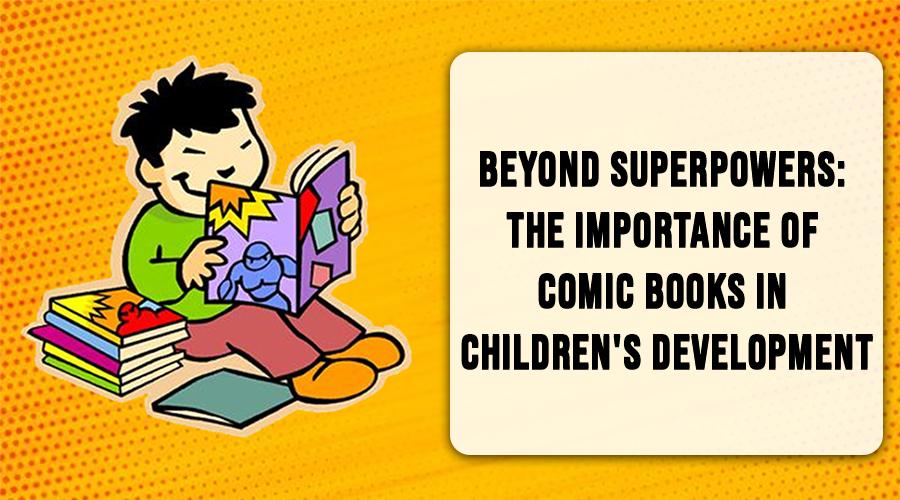The Importance of Comic Books in Children’s Development
Introduction:
Step into the vibrant world of comic books, where imagination knows no bounds. In this blog, we’ll explore why comic books are more than just colorful tales—they’re essential tools for fostering creativity, literacy, and character development in children.
1-Visual Literacy and Language Skills:
Discuss how the combination of visuals and text in comic books helps children develop strong visual literacy skills, aiding in better comprehension and language development.
2-Stimulating Imagination and Creativity:
Explore how the fantastical worlds, unique characters, and imaginative storylines in comics ignite children’s creativity, encouraging them to dream beyond conventional boundaries.
3-Encouraging a Love for Reading:
Highlight the role of comic books in cultivating a love for reading. Comics provide an engaging entry point for reluctant readers, making the reading experience enjoyable and accessible.
4-Moral Lessons and Values:
Examine how comic book narratives often convey moral lessons and values, teaching children about justice, empathy, and the consequences of choices through relatable characters and situations.
5-Diversity and Inclusivity:
Celebrate how comic books introduce children to diverse characters and perspectives, fostering inclusivity and helping them develop an appreciation for differences.
6-Building Critical Thinking Skills:
Discuss how children engage with complex plots and character dynamics in comics, honing their critical thinking skills as they analyze and interpret the sequential storytelling.
7-Emotional Intelligence:
Explore how characters’ emotions and experiences in comic books provide a framework for children to understand and navigate their own emotions, contributing to the development of emotional intelligence.
8-Developing a Sense of Responsibility:
Showcase how superheroes and protagonists in comics often exemplify traits like responsibility and resilience, serving as positive role models for young readers.
9-Enhancing Fine Motor Skills:
Point out the physical benefits of reading comic books, such as turning pages, following speech bubbles, and focusing on detailed artwork, which contribute to the development of fine motor skills.
10-Bridging Generation Gaps:
Discuss how comic books serve as a shared cultural experience between generations, providing a common ground for parents and children to bond over stories they love.
Conclusion:
As we close the final page of this exploration, it’s evident that comic books play a vital role in shaping not only children’s reading habits but also their cognitive, emotional, and social development. In a world that constantly evolves, comic books remain timeless companions, guiding young minds on journeys of discovery and growth.


Add Comment